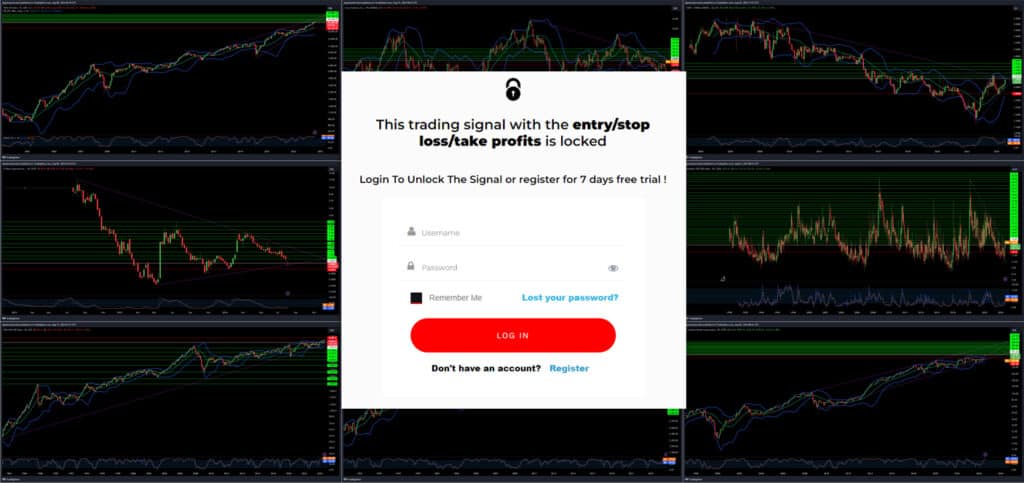When it comes to investing, choosing between growth stocks and value stocks can be a daunting task. As an investor, it is crucial to understand the key differences between these two types of stocks to make an informed decision that aligns with your investment goals and risk tolerance. In this article, I will explore the characteristics of growth stocks and value stocks, discuss the potential risks and rewards associated with each, and provide insights to help you make the right investment choice for your portfolio.
Key Takeaways:
- Growth stocks are shares of companies that are expected to grow at an above-average rate compared to the broader market.
- Investing in growth stocks offers the potential for significant capital appreciation over the long term.
- Value stocks are shares of companies that are considered undervalued by the market.
- Investing in value stocks can provide stability and income potential.
- Your investment goals, risk tolerance, and current market conditions should guide your decision-making process.
What are Growth Stocks?
Growth stocks are shares of companies that are expected to grow at an above-average rate compared to the broader market. These companies typically reinvest their earnings into expanding their business, developing new products or services, or entering new markets.
Growth stocks are often associated with companies in innovative industries, such as technology, healthcare, and e-commerce. Investors are attracted to growth stocks because of their potential for significant capital appreciation over the long term. However, they also come with a higher level of risk, as their valuations can be based on future expectations rather than current earnings.
The Benefits of Investing in Growth Stocks
Investing in growth stocks can offer several benefits. First, the potential for high returns is one of the main attractions. Growth stocks have the potential to outperform the broader market and deliver substantial capital gains.
Second, growth companies often have a competitive edge or a unique product/service, which can lead to long-term success. These companies are at the forefront of innovation and disruption, positioning them for potential rapid growth and market dominance in their respective industries.
Third, investing in growth stocks allows you to participate in the growth of exciting industries and sectors. By investing in companies that are driving technological advancements, breakthrough healthcare solutions, or revolutionary business models, you can potentially benefit from the rapid expansion of these industries.
Furthermore, growth stocks can provide diversification to your portfolio. Their performance may not be closely correlated with other types of stocks, such as value stocks or dividend-paying stocks. As a result, adding growth stocks to your portfolio can reduce overall risk and potentially enhance overall returns.
“Investing in growth stocks can be a powerful strategy to build wealth over the long term. The key is to identify companies with solid growth prospects, sustainable competitive advantages, and strong management teams. By investing in these companies early on, investors can capture the value created by future growth and drive significant portfolio gains.”
When considering the benefits of investing in growth stocks, it’s important to note that these stocks come with a higher level of risk. Their valuations are often based on future expectations rather than current earnings, making them more susceptible to market volatility and investor sentiment. It’s crucial to conduct thorough research, analyze financial metrics, and assess the company’s growth prospects before making investment decisions.
What are Value Stocks?
Value stocks are shares of companies that are considered to be undervalued by the market. These companies are often well-established, with stable earnings and dividends. Value investors seek out these stocks based on their belief that the market has not properly recognized the company’s true worth. Value stocks are typically found in industries that are currently out of favor or facing temporary challenges. These stocks are attractive to investors looking for potential capital appreciation and steady income through dividends.
Investing in value stocks can be a strategic choice for those seeking stability and income potential. Unlike growth stocks, which rely on future expectations, value stocks are based on current earnings and tangible assets. This lower level of risk appeals to conservative investors who prioritize steady income streams and downside protection. By identifying undervalued companies in industries with short-term challenges but long-term potential, value investors position themselves for potential capital appreciation as the market recognizes and adjusts for the company’s true value.
“The stock market is filled with individuals who know the price of everything, but the value of nothing.” – Philip Fisher
When searching for value stocks, investors often look for companies with stable financial performance and a history of paying dividends. These attributes indicate an established and well-managed company that may have been overlooked by the market. Value companies are found in various sectors and industries, such as utilities, healthcare, and manufacturing. By conducting thorough research and analysis, value investors aim to uncover hidden gems that have the potential to deliver solid returns over the long term.
Key Characteristics of Value Stocks:
- Undervalued by the market
- Well-established companies
- Stable earnings and dividends
- Found in industries facing short-term challenges
- Potential for capital appreciation
Investing in value stocks requires a patient and disciplined approach. It may take time for the market to recognize the company’s true value and adjust the stock price accordingly. However, for investors who prioritize stability, income, and the potential for long-term gains, value stocks can be an attractive addition to a well-diversified portfolio.
The Benefits of Investing in Value Stocks
Investing in value stocks can offer a range of benefits for investors. These stocks are known for having a lower level of risk compared to growth stocks, making them appealing to those who prioritize stability in their investment strategy. The valuations of value stocks are based on current earnings and tangible assets, providing a more solid foundation for assessing their potential.
One major advantage of investing in value stocks is the potential for capital appreciation. When the market recognizes the true value of a company, the stock price may adjust accordingly, resulting in significant gains for investors. This provides an opportunity to capitalize on undervalued stocks and benefit from their upward trajectory.
Additionally, value stocks often pay dividends, which can provide a steady income stream for investors. Companies that issue dividends tend to be more established and have a history of generating consistent profits. For income-focused investors, this can be a valuable source of passive income.
Finally, investing in undervalued companies allows you to purchase stocks at a discount, increasing the potential for future returns. By identifying stocks that the market has overlooked or undervalued, you can take advantage of favorable buying opportunities and position yourself for long-term growth.
Considerations for Choosing Between Growth and Value Stocks
When deciding between growth stocks and value stocks, there are several considerations to keep in mind. First, your investment goals and risk tolerance should play a significant role in your decision-making process. If you have a higher risk tolerance and are seeking substantial capital appreciation, growth stocks may be more suitable. If you prioritize stability and income, value stocks may be a better fit.
Second, the current market conditions and economic outlook can also influence your choice. During periods of economic uncertainty, value stocks may be more attractive as investors seek out stable, dividend-paying companies.
Finally, it can be beneficial to diversify your portfolio by including a mix of growth and value stocks to balance risk and potential returns.
| Consideration | Growth Stocks | Value Stocks |
|---|---|---|
| Risk Tolerance | Higher risk due to potential volatility | Lower risk due to stable earnings |
| Potential Returns | Possibility of significant capital appreciation | Potential for capital appreciation if market recognizes true value |
| Income | Usually do not pay dividends | Often pay dividends, providing a steady income stream |
| Market Conditions | Attractive during periods of economic growth | Attractive during periods of economic uncertainty |
| Diversification | Can complement a portfolio with a focus on growth | Can add stability and income to a portfolio |
Case Studies: Angle and Gore Street Energy Storage Fund
To illustrate the potential of growth stocks, let’s take a closer look at two real-life examples: Angle and Gore Street Energy Storage Fund.
Angle is a leading liquid biopsy company that specializes in innovative technology for cancer diagnosis. With the increasing number of cancer cases worldwide, Angle has the opportunity for significant growth in the healthcare industry.
Gore Street Energy Storage Fund is an investment fund that focuses on assets supporting the transition to clean energy. As renewable energy becomes more prevalent, the demand for energy storage solutions is expected to rise substantially. This presents an excellent growth potential for the fund.
These case studies highlight the rewards and potential of investing in growth stocks. Angle’s groundbreaking technology and Gore Street Energy Storage Fund’s focus on clean energy align with the growing trends and demands of their respective industries.
| Company | Industry | Key Growth Factors |
|---|---|---|
| Angle | Healthcare | – Innovative technology for cancer diagnosis – Increasing number of cancer cases globally |
| Gore Street Energy Storage Fund | Clean Energy | – Transition to renewable energy sources – Growing demand for energy storage solutions |
Conclusion
After weighing the pros and cons, the decision between growth stocks and value stocks ultimately depends on your individual investment goals, risk tolerance, and the current market conditions. Growth stocks offer the allure of high returns, driven by companies with strong growth potential and innovative products or services. However, they also come with a higher level of risk and can be more volatile, as their valuations are often based on future expectations rather than current earnings. On the other hand, value stocks provide stability and income potential, with established companies that are undervalued by the market. These stocks can offer a sense of security and may be more appealing during periods of economic uncertainty.
To make an informed decision on the type of stocks that best fit your investment strategy, it’s crucial to thoroughly understand the characteristics and benefits of both growth stocks and value stocks. Diversification is key, as a mix of both types of stocks can help balance risk and potential returns in your portfolio. By conducting thorough research and staying informed about market trends, you can navigate the investment landscape more effectively and maximize your portfolio’s potential for growth.
Remember that investing in any type of stock involves risks, and there is no guarantee of positive returns. It is essential to consult with a financial advisor or conduct your own due diligence before making any investment decisions. By carefully considering your investment goals and the factors discussed in this article, you can choose the right investment path and create a diversified portfolio that aligns with your financial objectives.
FAQ
What are growth stocks?
Growth stocks are shares of companies that are expected to grow at an above-average rate compared to the broader market. These companies typically reinvest their earnings into expanding their business, developing new products or services, or entering new markets.
What are the benefits of investing in growth stocks?
Investing in growth stocks offers several benefits. First, there is the potential for high returns. Growth stocks have the potential to outperform the broader market and deliver substantial capital gains. Second, growth companies often have a competitive edge or a unique product/service, which can lead to long-term success. Third, investing in growth stocks allows you to participate in the growth of exciting industries and sectors. Finally, growth stocks can provide diversification to your portfolio.
What are value stocks?
Value stocks are shares of companies that are considered to be undervalued by the market. These companies are often well-established, with stable earnings and dividends. Value investors seek out these stocks based on their belief that the market has not properly recognized the company’s true worth.
What are the benefits of investing in value stocks?
Investing in value stocks provides several benefits. First, these stocks often have a lower level of risk compared to growth stocks, as their valuations are based on current earnings and tangible assets. Second, value stocks have the potential for capital appreciation if the market recognizes their true value and adjusts their prices accordingly. Third, value stocks often pay dividends, providing a steady income stream to investors. Finally, investing in undervalued companies can allow you to buy stocks at a discount, increasing the potential for future returns.
What should I consider when choosing between growth and value stocks?
When deciding between growth stocks and value stocks, consider your investment goals and risk tolerance. If you have higher risk tolerance and seek substantial capital appreciation, growth stocks may be more suitable. If you prioritize stability and income, value stocks may be a better fit. Additionally, consider the current market conditions and economic outlook, as well as the need for diversification in your portfolio.
Can you provide examples of growth stocks?
Two examples of growth stocks are Angle, a liquid biopsy company that provides innovative technology for cancer diagnosis, and Gore Street Energy Storage Fund, which invests in assets that support the transition to clean energy.
Is there a definitive answer on whether to choose growth or value stocks?
No, the choice between growth and value stocks depends on your investment goals, risk tolerance, and the current market conditions. By understanding the characteristics and benefits of each type of stock, you can make an informed decision that aligns with your investment strategy.
What is the importance of diversification in investing?
Diversification is important in investing as it helps to spread risk and potentially improve overall portfolio performance. By including a mix of growth and value stocks, you can balance risk and potential returns.
Source Links
- https://finance.yahoo.com/news/victory-square-portfolio-company-xr-173000533.html
- https://finance.yahoo.com/news/magna-international-tse-mg-shareholders-172932316.html
- https://www.fool.co.uk/2024/01/11/2-penny-stocks-id-love-to-buy-for-my-stocks-shares-isa-today/
Disclaimer
All information on this website is of a general nature. The information is not adapted to conditions that are specific to your person or entity. The information provided can not be considered as personal, professional or legal advice or investment advice to the user.
This website and all information is intended for educational purposes only and does not give financial advice. Signal Mastermind Signals is not a service to provide legal and financial advice; any information provided here is only the personal opinion of the author (not advice or financial advice in any sense, and in the sense of any act, ordinance or law of any country) and must not be used for financial activities. Signal Mastermind Signals does not offer, operate or provide financial, brokerage, commercial or investment services and is not a financial advisor. Rather, Signal Mastermind Signals is an educational site and a platform for exchanging Forex information. Whenever information is disclosed, whether express or implied, about profit or revenue, it is not a guarantee. No method or trading system ensures that it will generate a profit, so always remember that trade can lead to a loss. Trading responsibility, whether resulting in profits or losses, is yours and you must agree not to hold Signal Mastermind Signals or other information providers that are responsible in any way whatsoever. The use of the system means that the user accepts Disclaimer and Terms of Use.
Signal Mastermind Signals is not represented as a registered investment consultant or brokerage dealer nor offers to buy or sell any of the financial instruments mentioned in the service offered.
While Signal Mastermind Signals believes that the content provided is accurate, there are no explicit or implied warranties of accuracy. The information provided is believed to be reliable; Signal Mastermind Signals does not guarantee the accuracy or completeness of the information provided. Third parties refer to Signal Mastermind Signals to provide technology and information if a third party fails, and then there is a risk that the information may be delayed or not delivered at all.
All information and comments contained on this website, including but not limited to, opinions, analyzes, news, prices, research, and general, do not constitute investment advice or an invitation to buy or sell any type of instrument. Signal Mastermind Signals assumes no responsibility for any loss or damage that may result, directly or indirectly, from the use or dependence on such information.
All information contained on this web site is a personal opinion or belief of the author. None of these data is a recommendation or financial advice in any sense, also within the meaning of any commercial act or law. Writers, publishers and affiliates of Signal Mastermind Signals are not responsible for your trading in any way.
The information and opinions contained in the site are provided for information only and for educational reasons, should never be considered as direct or indirect advice to open a trading account and / or invest money in Forex trading with any Forex company . Signal Mastermind Signals assumes no responsibility for any decisions taken by the user to create a merchant account with any of the brokers listed on this website. Anyone who decides to set up a trading account or use the services, free of charge or paid, to any of the Broker companies mentioned on this website, bears full responsibility for their actions.
Any institution that offers a service and is listed on this website, including forex brokers, financial companies and other institutions, is present only for informational purposes. All ratings, ratings, banners, reviews, or other information found for any of the above-mentioned institutions are provided in a strictly objective manner and according to the best possible reflection of the materials on the official website of the company.
Forex/CFD trading is potentially high risk and may not be suitable for all investors. The high level of leverage can work both for and against traders. Before each Forex/CFD investment, you should carefully consider your goals, past experience and risk level. The opinions and data contained on this site should not be considered as suggestions or advice for the sale or purchase of currency or other instruments. Past results do not show or guarantee future results.
Neither Signal Mastermind Signals nor its affiliates ensure the accuracy of the content provided on this Site. You explicitly agree that viewing, visiting or using this website is at your own risk.




